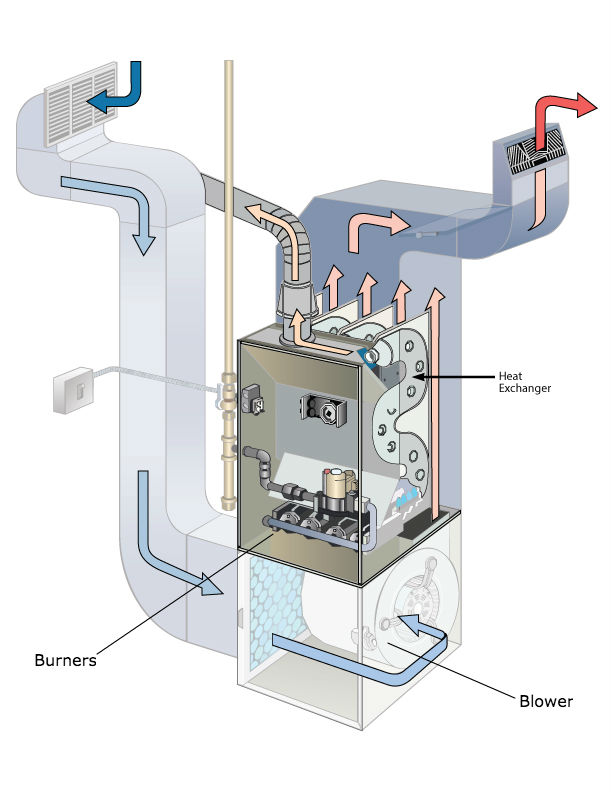Boiler vs Furnace: Which is Best for My NJ Home?
November 11, 2024

If you’re considering a new heating system for your home, you might be wondering whether you should purchase a furnace or boiler.
When it comes to the furnace vs boiler debate, there’s not necessarily a clear-cut winner. Both heating systems are perfectly capable of providing adequate heat to New Jersey homes.
The heating system that will work best for you depends on the following factors:
- Your budget for upfront installation costs
- How much you want to save over time
- Your comfort preferences
We’ll look at each of these factors in more detail to help you weigh the pros and cons of each type of heating system.
Factor #1: Your budget for upfront installation costs
Boilers are generally more expensive to install than furnaces. The reason the upfront cost is higher for boilers is because they take longer to install, and usually have higher equipment costs compared to furnaces.
That said, if you already have a boiler, it doesn’t necessarily mean you’ll save money by switching to a furnace. To install a furnace for the first time, you’d need to factor in the costs of installing ductwork, which can increase the installation by $5,000 or more. In that situation, you could probably save more money replacing your old boiler instead of switching to a new furnace.
For more information about the upfront costs of each system, refer to the following blogs:
- How Much Does It Cost to Replace a Boiler in New Jersey?
- What’s the Cost to Install a Gas Furnace in New Jersey?
Factor #2: How much you want to save over time
Even though upfront costs weigh heavily in your decision of the type of heating system you choose, you’ll also want to consider the long-term operating costs of each system.
In general, boilers have a lower operating cost than furnaces. This has to do with the fact that boilers supply heat via insulated pipes, which are typically better transporters of heat than ducts. You see, ducts often develop leaks, which results in the furnace having to work extra hard to heat the home. The extra effort caused by leaky ducts ultimately lowers the efficiency of the furnace and leads to higher energy bills.
To calculate the potential energy costs of a particular boiler or furnace, we recommend you consult with a professional. A heating expert can calculate estimated operating costs based on:
- The efficiency rating of the heating system
- Your home’s insulation levels
- Your temperature preferences
After considering each of those factors, you’ll have a better idea of how much it will cost to operate a boiler or furnace each month, which will help you choose between the two heating systems.
Factor #3: Your comfort preferences
In addition to cost factors above, you’ll also want to consider the following comfort factors as well:
- Air quality: Because boilers don’t blow air into your home, they don’t circulate allergens or pollutants in the air. If someone in your home suffers from extreme allergies, you may consider a boiler over a furnace. That said, if you opt for a furnace, you can install an air purifier (for an additional cost) to improve air quality in your home.
- Reaction time: When you adjust the thermostat settings on a boiler, it will generally take the boiler longer to adapt to the change compared to a furnace. If near-instant heat is important to you, you may prefer a furnace over a boiler.
- Consistent heat: Boilers generally provide more even heat throughout a room compared to a furnace, which gives you greater temperature control.
Need help choosing a heating system? Contact a trusted NJ pro
For over 25 years, we’ve helped New Jersey residents choose the perfect heating system for their homes. When you hire Air Experts, you can count on honest recommendations and upfront prices for all new heating systems we install.
For more information about what to expect when you hire us, visit our boiler installation or furnace installation pages.
